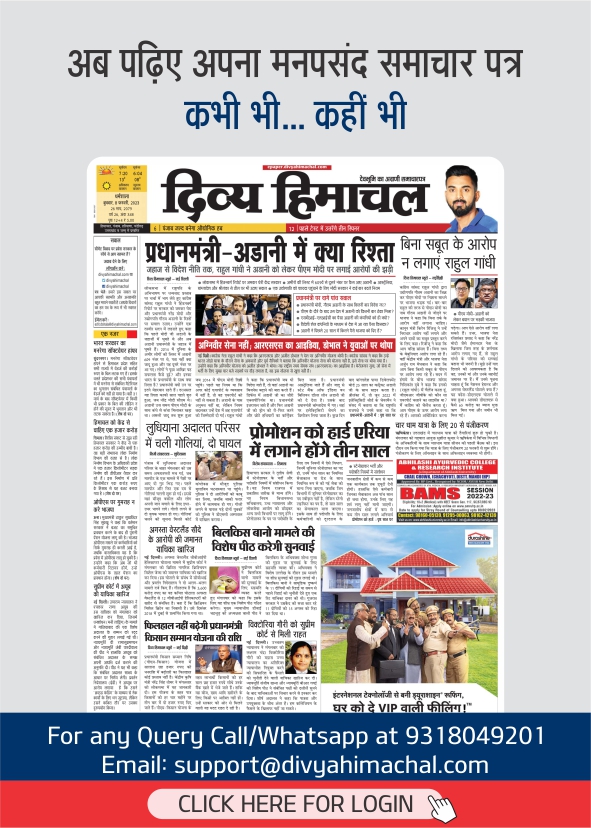India Needs The Right System To Protect Its ‘Unity In Diversity’

Founder of Divya Himachal & Author of ‘Why India Needs the Presidential System’
India’s celebrated “unity in diversity” is in peril. Even as the country marks its 70th year of independence, there are nearly a dozen festering insurgencies or secessionist movements. The outgoing Vice President Hamid Ansari has just announced that the nation’s minorities are insecure. Easterners have been attacked in the west, and southerners feel unwelcome in the north. People of some states have tried to expel entire ethnic communities: Pandits from Kashmir, Bengalis from Assam. Every caste is demanding special treatment through reservations or financial subsidies. And the states have been fighting among themselves for everything under the sun—water, territory, capital city, language, flag, and so on.
The problem is India never developed a good system to manage its diversity. The ad hoc approach only led to appeasement, violence, and alienation among communities. If the country had a system of government rooted in proven principles of national integration and supremacy, local autonomy and accountability, and equality before law, it would be more unified.
* Never developed a good system to manage its diversity. The ad hoc approach only led to appeasement, violence, and alienation among communities
National Integration: One Nation-One Constitution
The people of each state must pledge allegiance to India’s Constitution. Our Constitution was adopted without requiring that it be ratified by the states. By contrast, in the United States, this was a necessary condition for the adoption of their constitution. This requirement not only generated a feeling of national unity, but it brought about useful changes, such as the Bill of Rights.
Each state, including Kashmir, must affirm that cessation is not an option under our Constitution, and that it adheres to its every provision. This is not farfetched, even for Kashmir, considering the rest of my proposal. Besides, we cannot allow one state of the union to deny the rest of the country the benefits of unquestioned allegiance to the principle of one nation-one Constitution.
National Supremacy: Centre Laws Over State Laws
India’s Parliament must hold supremacy over state assemblies. It was only recently that the Supreme Court ruled that in the event of conflict central legislation overrides state laws. But such conflicts arise frequently because India’s Constitution follows the impractical approach of assigning many powers to Centre as well as states. This often results in central laws imposing financial burdens on states, leaving them little flexibility to modify laws according to their needs; or worse, directly infringing on their rights.
We must remove our Constitution’s Concurrent List. It’s causing tremendous harm, for it not only allows governments to shirk responsibility, it makes many laws impracticable. M.R. Madhavan, head of PRS Legislative Research, has written that India needs “a detailed public debate on federalism and treatment of items in the concurrent list.”
India will do well by granting only essential powers to both central and state governments, similar to the US Constitution. Powers only to tax, borrow, charter banks and corporations, establish courts, and acquire property for public good. But more importantly India’s Constitution must also declare national supremacy. Madhav Khosla, constitutional expert, has said that “the Indian Constitution may give the Union more powers than it gives the states, but it does not establish the supremacy of the Union.” By contrast, “national supremacy” is one the basic principles of the U.S. Constitution. Its Article VI declares laws and treaties passed under the Constitution “supreme law of the land.”
* We must remove our Constitution’s Concurrent List. It’s causing tremendous harm, for it not only allows governments to shirk responsibility, it makes many laws impracticable.
Local Autonomy: All Powers—All Branches Of Government
State and local governments must be free to conduct their own affairs so that they can be held accountable. Without local autonomy—which means only self-government (swaraj), not self-determination— it is impossible to hold states solely responsible.
However for this principle to work state government powers must not overlap with those of the Centre. Also, states must be self sufficient, and their governments accountable only to the people, not to a central authority or party bosses. As the basic principle of democracy, we must trust the people to know what is best for them.
Let me just expound on distribution of powers. India’s Constitution grants the Centre more than 140 specific powers, as well as all those not specifically assigned. This gives the Centre a huge role in all areas of governance which inevitably interferes with local and state governments.
We would be better served by doing the opposite. Assign more powers to the states and leave them all residuary powers. This is precisely what the US Constitution does. The national government is given only a handful of exclusive powers: regulate interstate and foreign commerce, borrow and coin money, declare war, and maintain military. Since the states are given residuary powers their exclusive powers are few: conduct elections, establish local governments, regulate intrastate commerce, protect public health, safety and morals.
Granting states autonomy worries Indians, especially with respect to Kashmir, perhaps because they fear it gives impetus to talks of secession. But Article 370 has already given Kashmir control over local affairs. The arrangement didn’t work because of other factors: it didn’t adhere to principles of national integration and supremacy described above; it wasn’t honestly implemented; Kashmir governments were not self-sufficient; central interference remained a problem; and, of course, Pakistan muddied the waters.
The principle of local autonomy also requires that state governments have their own judiciary. This would alleviate one of India’s biggest problems with delays and corruption in courts by decentralising them. Similarly, this principle warrants that all elections are held by states themselves. When all representatives—MLAs and MPs—come from constituencies within states, it is distrustful of local people to have them elected via a central body.
* Granting states autonomy worries Indians, especially with respect to Kashmir, perhaps because they fear it gives impetus to talks of secession
Religious Equality: Uniform Code And Separation Of Religion And State
Lastly, for our “unity in diversity” to sustain, India must establish religious equality. As I have recently written, we desperately need a new definition of secularism, one based on freedom of religion, equality before law, and separation of religion and state.
While freedom of religion is firmly enshrined in our Constitution, having a Uniform Civil Code has remained one of its Directive Principles for 70 years. Now it is essential for our religious amity.
As for separation of religion and state, India should pass a constitutional amendment along the lines of the First Amendment of the US Constitution: that Parliament “shall make no law respecting an establishment of religion, or prohibiting the free exercise thereof.” We all take pride in India’s “unity in diversity.” It’s time to put some effort behind its protection.
विवाह प्रस्ताव की तलाश कर रहे हैं ? भारत मैट्रीमोनी में निःशुल्क रजिस्टर करें !
Keep watching our YouTube Channel ‘Divya Himachal TV’. Also, Download our Android App













